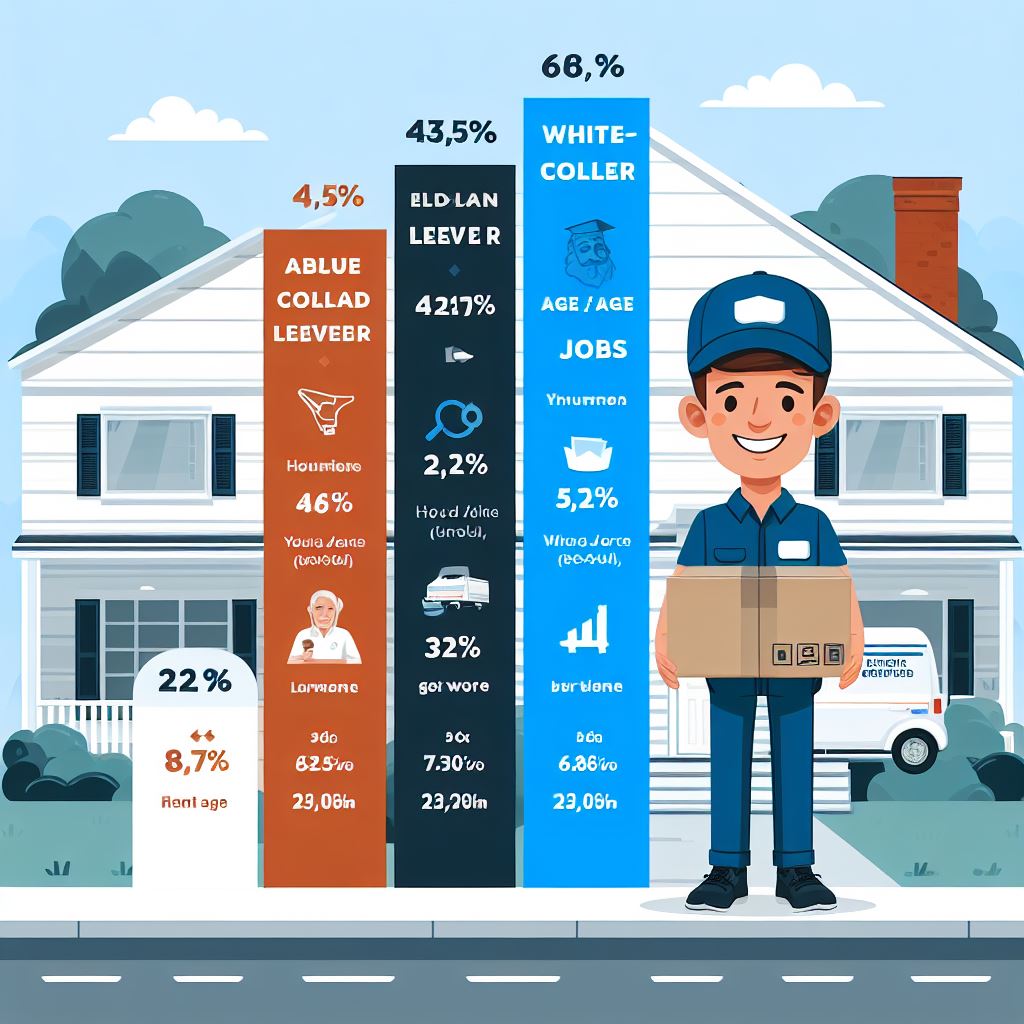Are delivery drivers blue collar?
The rise of the gig economy has blurred the lines between traditional classifications of work. Take delivery drivers: zipping through city streets, juggling orders, and facing the elements – are they the new face of blue collar, or something else entirely? Let’s untangle this knotty question. Despite common assumptions, the role of delivery drivers encompasses a diverse range of responsibilities and skills.

Here, we’ll explore the multifaceted nature of the delivery driver profession, challenging stereotypes and shedding light on the complexities of their work.
Role of Delivery Drivers
- Physical Labor: Driving long hours, navigating traffic, and carrying packages, delivery drivers perform manual labor demanding physical fitness and resilience. This aligns with the traditional image of blue collar work.
- Limited Formal Education: While some delivery jobs require specialized licenses or training, a four-year degree isn’t typically a prerequisite. This aspect mirrors the historical context of blue collar careers often accessible without higher education.
- Compensation Structure: Unlike salaried white-collar jobs, many delivery roles are paid by the task or hour, directly linking compensation to individual effort. This echoes the piecework model associated with some blue collar professions.
Beyond Blue Collar: Diverse Skill Set
- Technology Reliance: Today’s delivery drivers wield smartphones and navigate apps, leveraging digital tools and information systems crucial for their work. This tech-savviness differentiates them from many historical blue collar roles.
- Independent Contractor Model: Many delivery gigs fall under the umbrella of independent contracting, with less emphasis on traditional employer-employee dynamics. This autonomy, while offering flexibility, also contrasts with the structure of many blue collar jobs.
- Career Pathways: Delivery jobs can be stepping stones to other avenues, offering entry points into logistics, customer service, or even entrepreneurship. This potential for upward mobility deviates from some traditional blue collar career trajectories.
Customer Service Excellence
Delivery drivers serve as the face of the companies they represent, interacting directly with customers during the delivery process. As such, strong communication and customer service skills are essential for delivery drivers to provide exceptional service and address customer inquiries or concerns. Whether delivering meals from a restaurant or packages from an e-commerce retailer, delivery drivers play a vital role in shaping customer satisfaction and brand reputation.
Furthermore, delivery drivers often act as brand ambassadors, influencing customers’ perceptions of the companies they represent. Their professionalism, friendliness, and responsiveness can leave a lasting impression on customers and contribute significantly to brand loyalty and repeat business. By delivering not just packages or meals but also positive experiences, delivery drivers have the power to enhance customer satisfaction, strengthen brand reputation, and foster long-term relationships between businesses and their clientele.
The Fuzzy Middle Ground
Ultimately, pinning down delivery drivers as purely “blue collar” or something else misses the nuanced reality. They occupy a liminal space, embodying elements of both traditional classifications and carving out their own unique niche. The gig economy presents new challenges and opportunities that require us to move beyond rigid labels and embrace the fluidity of modern work.
Going Forward
Instead of fixating on labels, let’s focus on the experiences and needs of delivery drivers. They deserve fair compensation, safe working conditions, and access to social safety nets. Recognizing the complexities of their role, with its blend of physical demands, technological acumen, and entrepreneurial potential, is crucial for ensuring their well-being and creating a just system for all workers in the new economy.
What do you think? Are delivery drivers blue collar? What challenges and opportunities do they face? Share your thoughts in the comments below!
Feel free to explore further by diving into specific aspects, like the impact of automation on delivery jobs, the role of unions in the gig economy, or the importance of diversity and inclusion within this workforce. Let’s keep the conversation going and navigate the evolving landscape of work together!